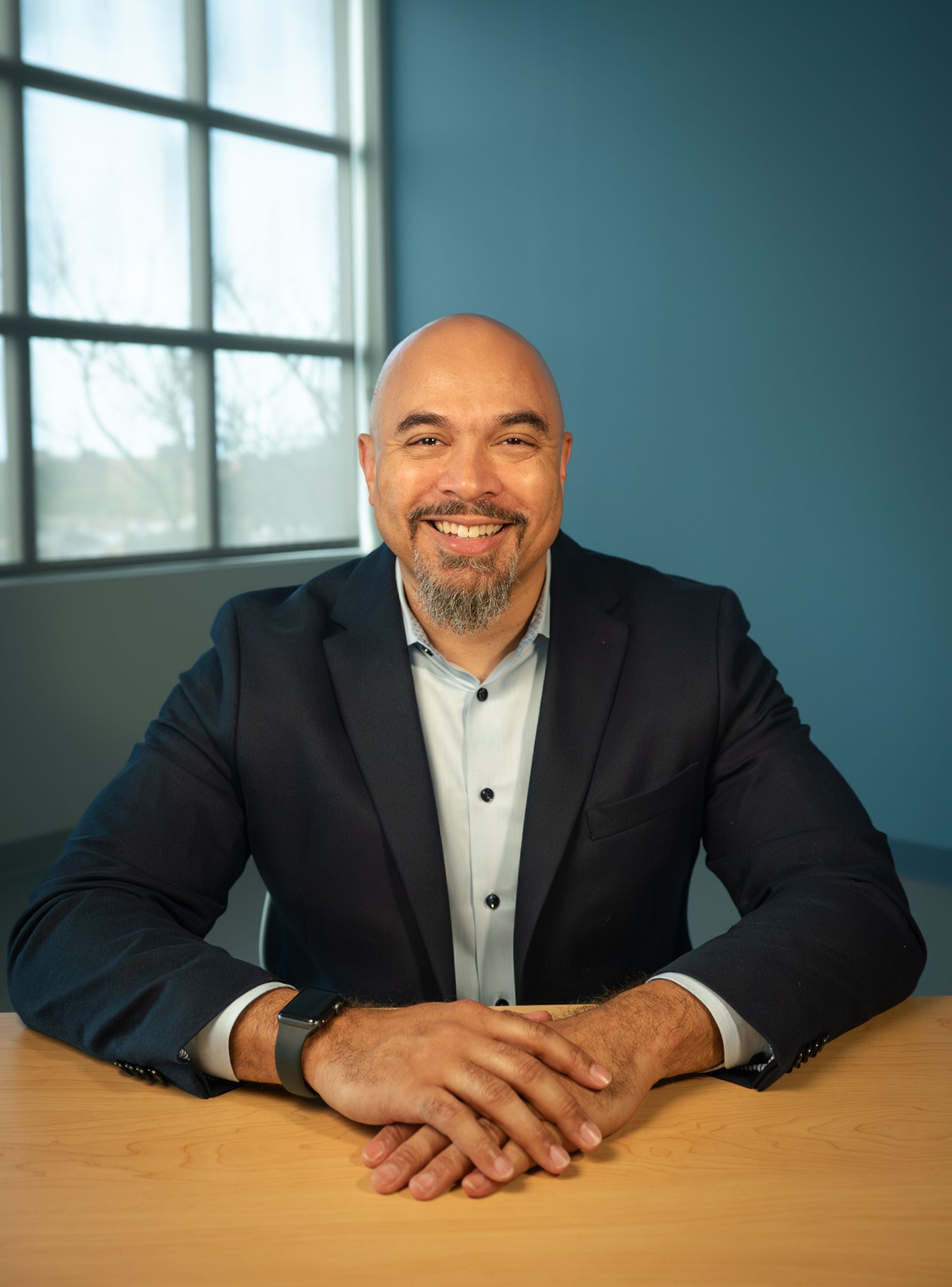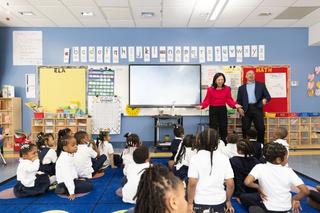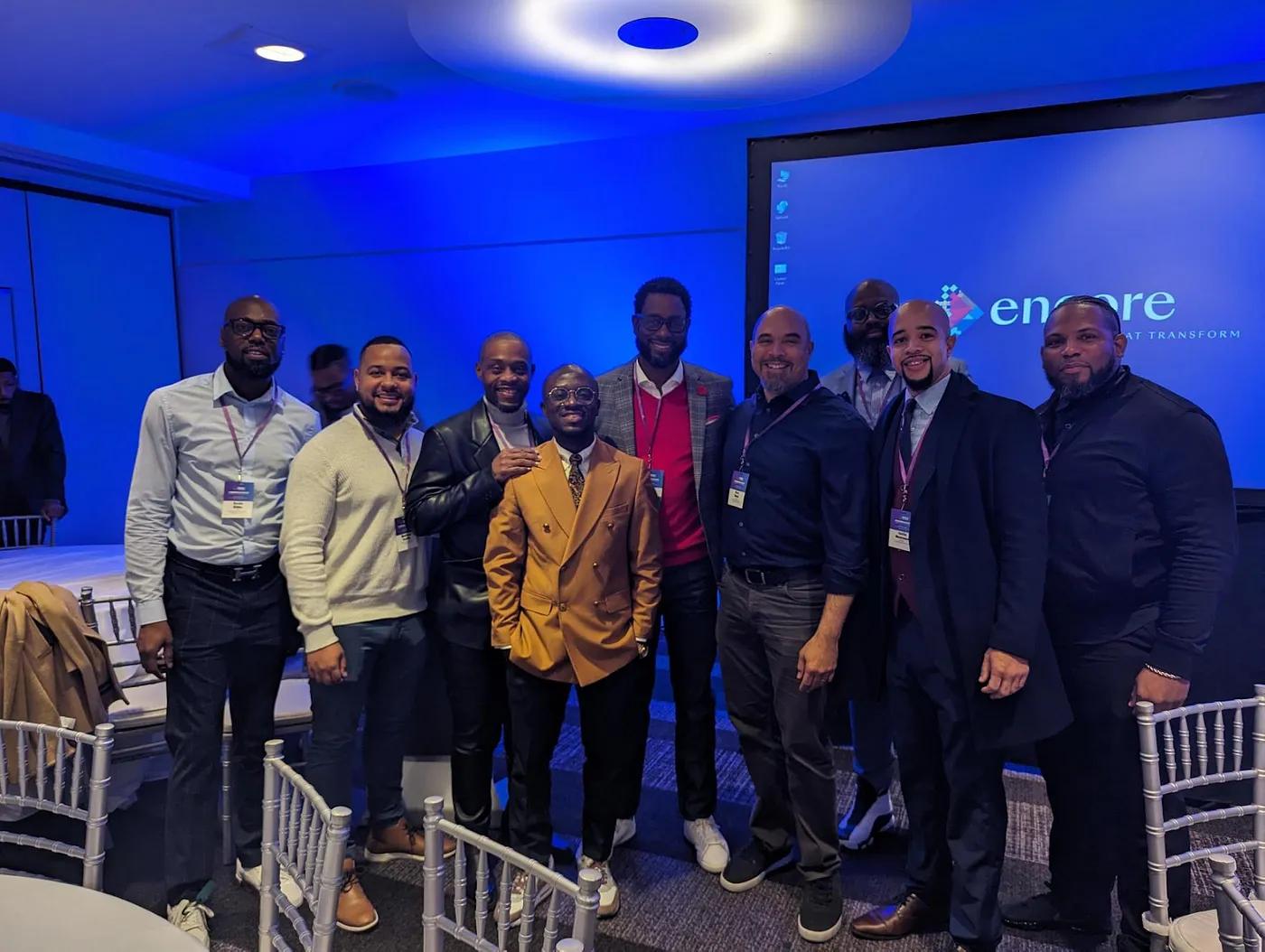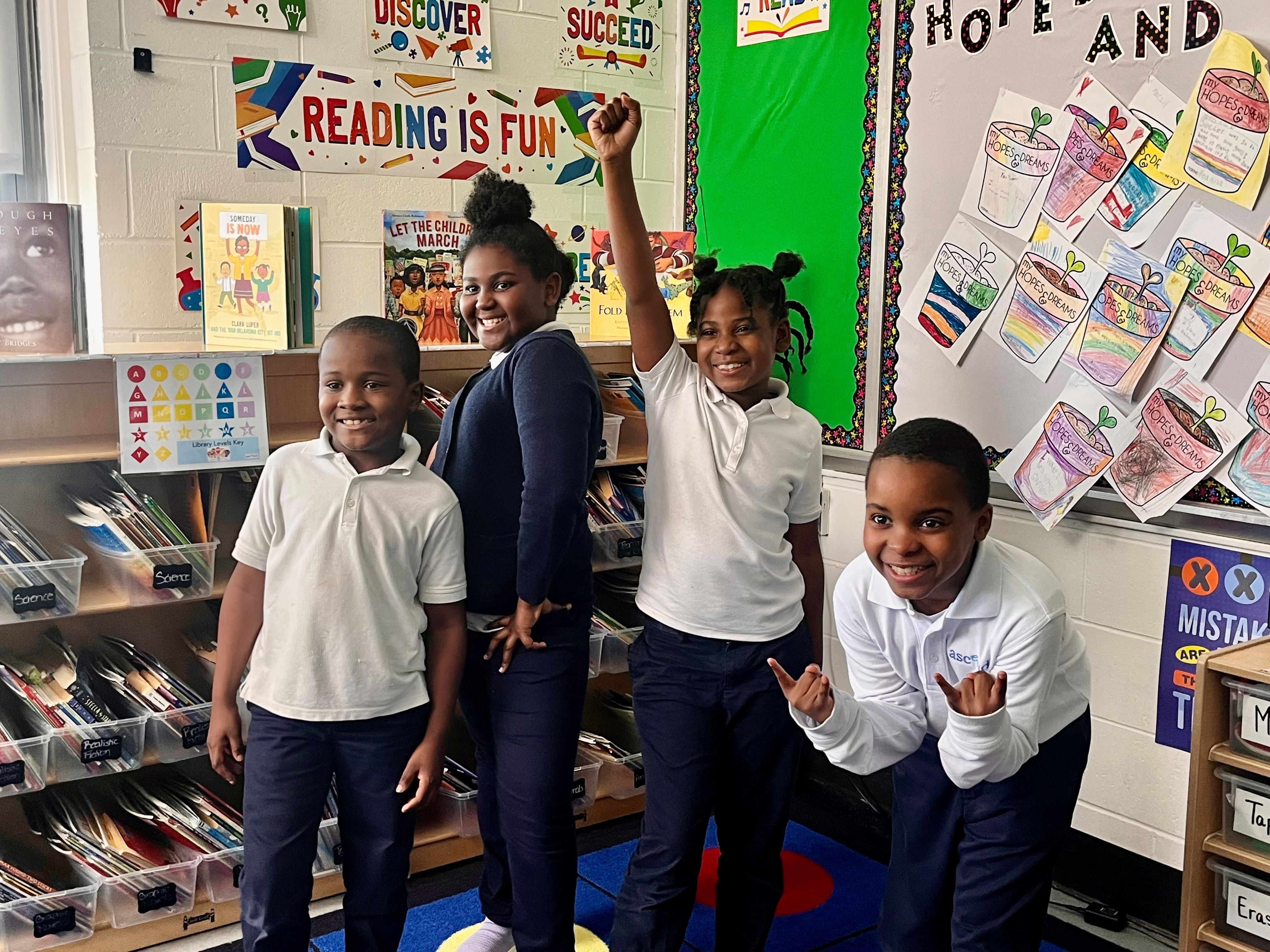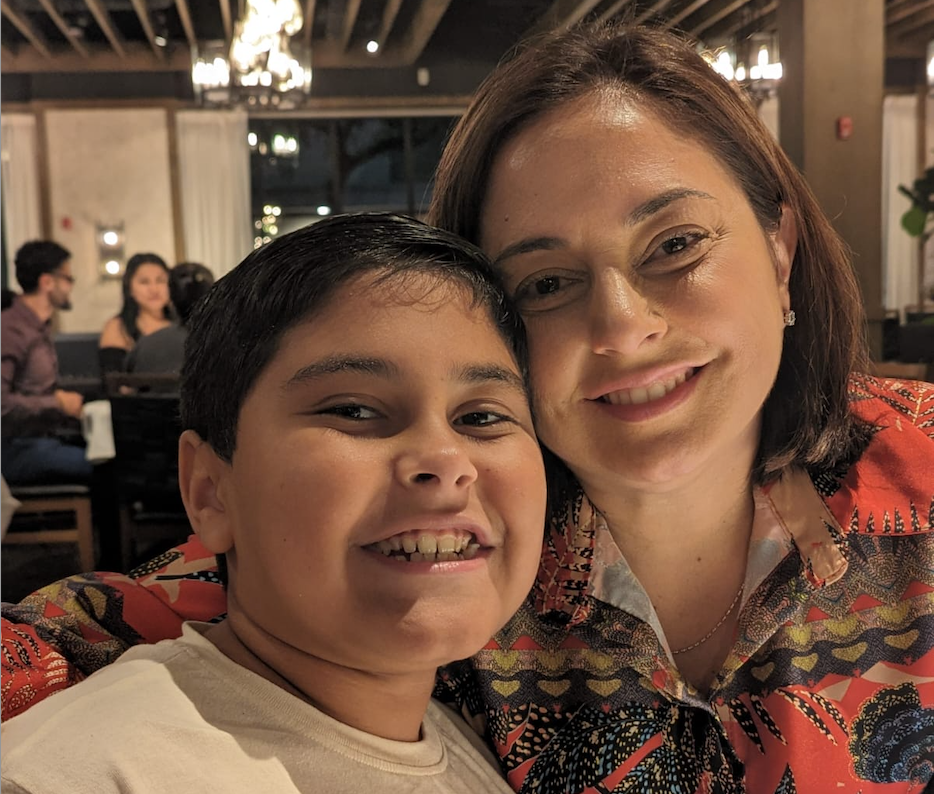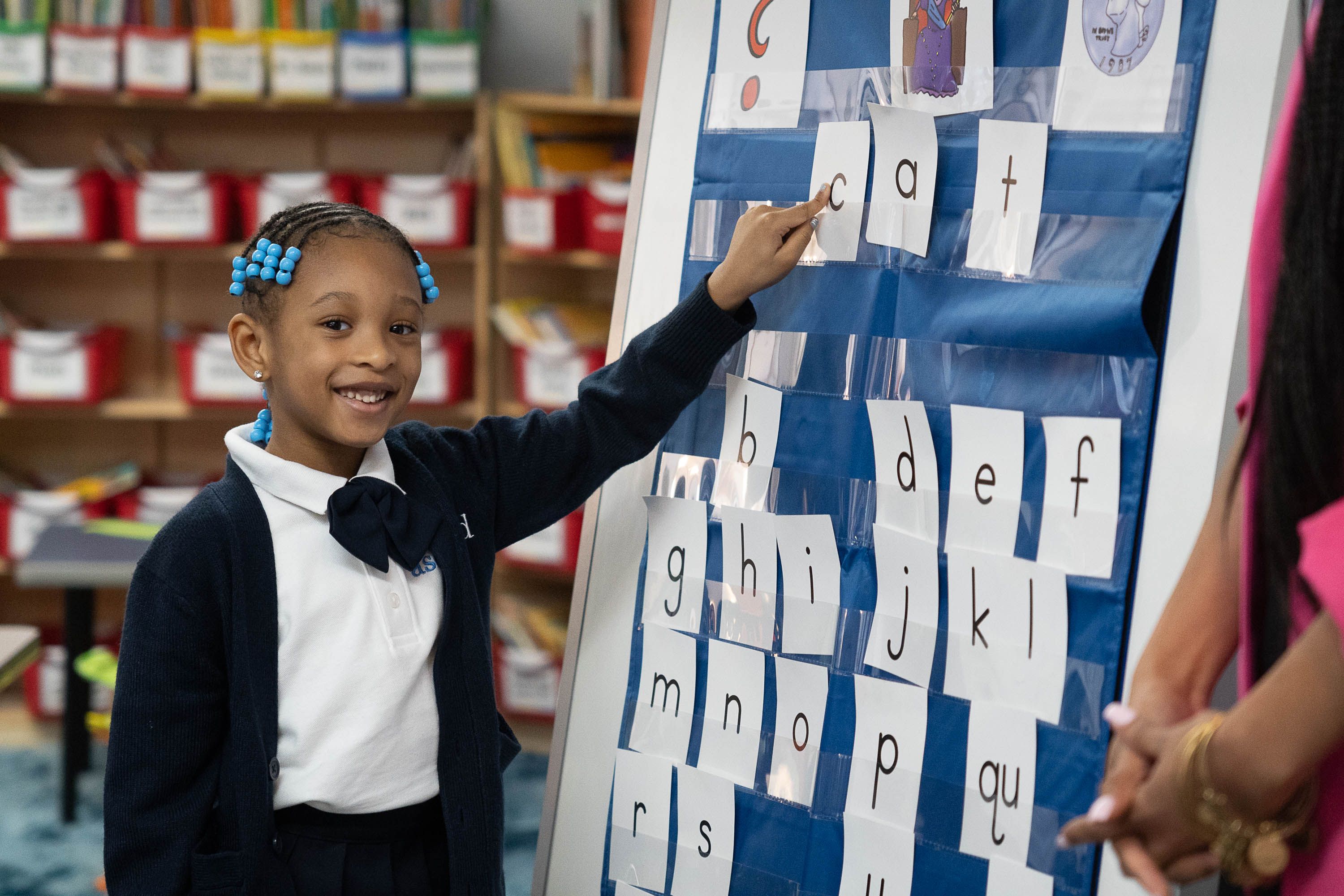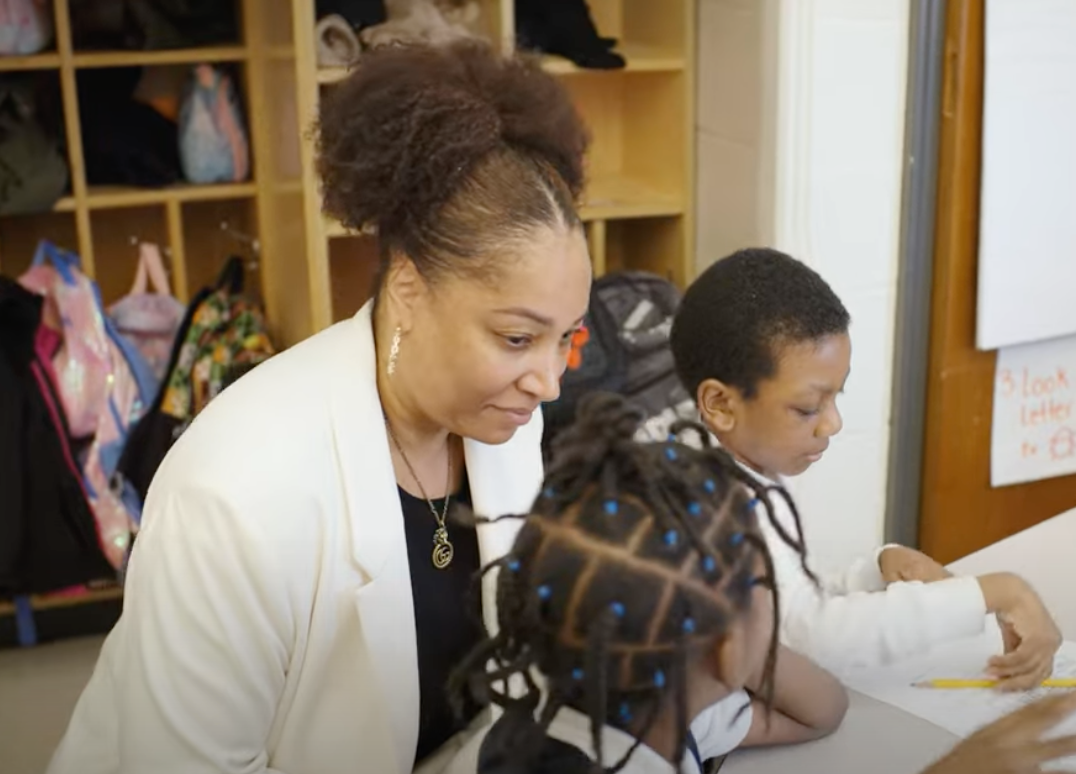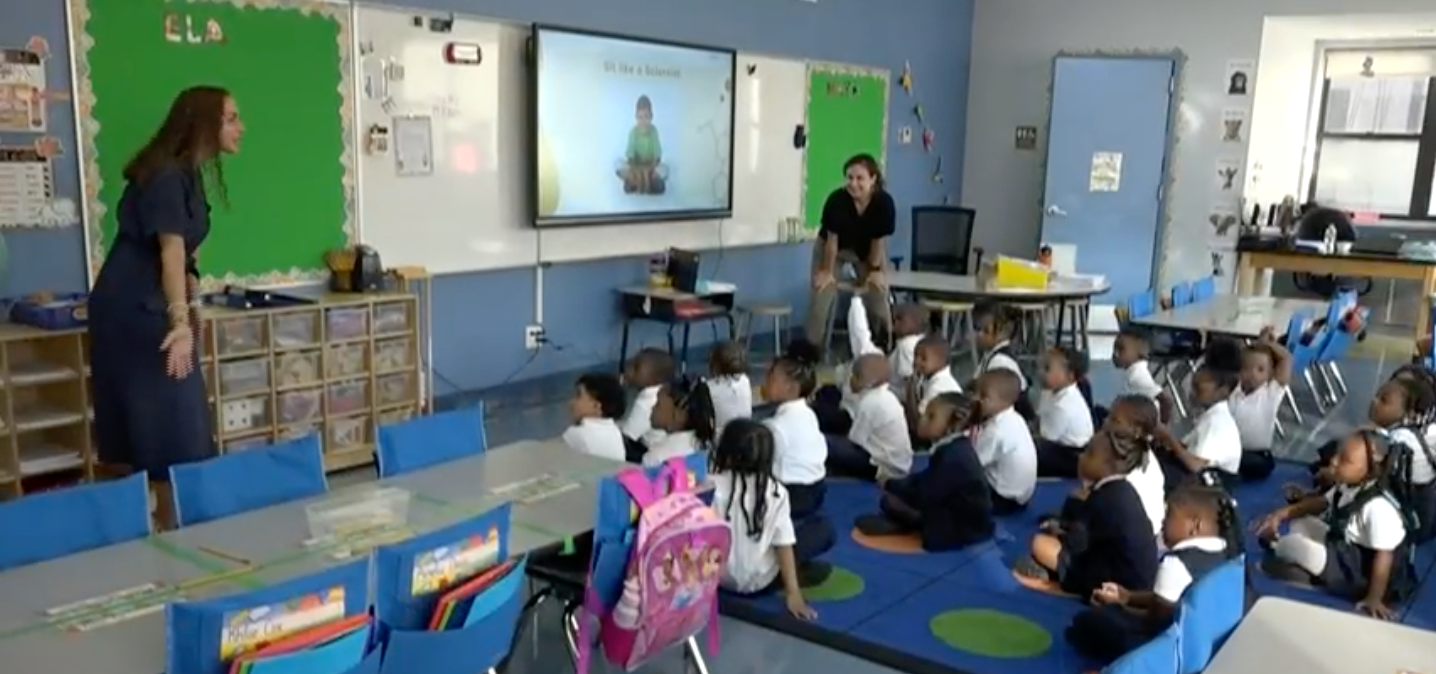A brighter future begins now! Apply today for Fall 2025!
A brighter future begins now! Apply today for Fall 2025!
Inside the Ascend Humanities Program with Betsey Schmidt, Chief Curriculum and Innovation Officer
Elizabeth (Betsey) Hun Schmidt
April 5, 2016
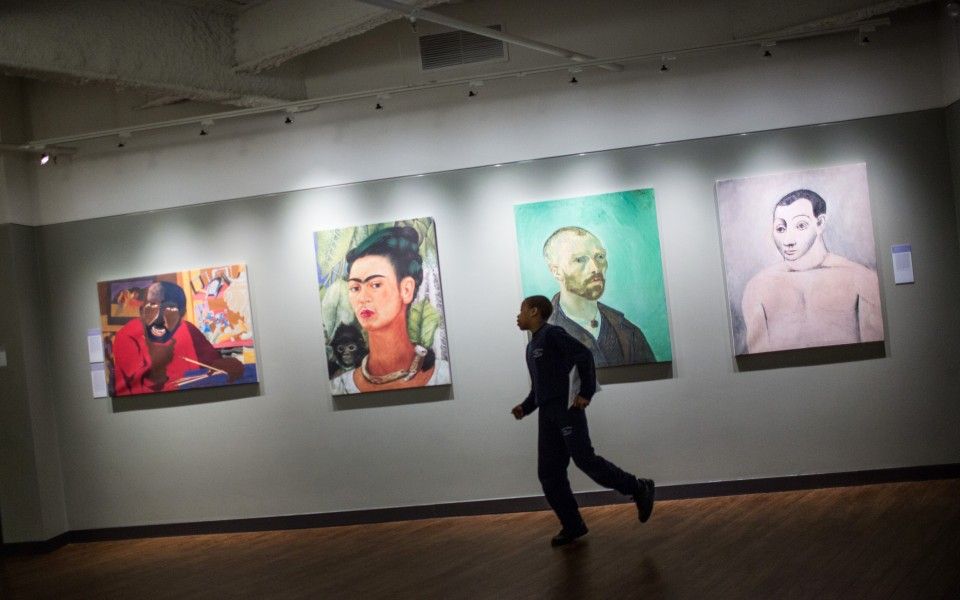
Why did Ascend create the Humanities Program?
We created the Humanities Program because we wanted our students to experience a more rigorous, interdisciplinary engagement with literature and the arts—and because we wanted them to fall in love with reading great books. We felt that the texts our scholars were reading were not sufficiently complex, challenging, or compelling, and we wanted them to read more non-fiction, and to read whole books instead of adapted excerpts. Preparing our students to succeed in college means we have to do more to develop strong critical-thinking and writing skills, and we also have to inspire a love of learning.
Humanities classes are designed to foster curiosity about the history of great ideas, and encourage students to partake in heated, opinionated discussions about important issues. Above all, we want our students to have the confidence to take risks. Our goal is for our graduates to be able to sit down at the seminar table in excellent liberal arts colleges and participate actively and with the confidence that comes from years of exposure and preparation.
How is the Ascend Humanities Program aligned with the Common Core?
When the Ascend Humanities Program was first conceived six years ago, we worked very intentionally with the early versions of the Common Core reading and writing standards. As a result, values of the Common Core are integral to the Humanities Program—a high level of critical thinking, an interdisciplinary approach to complex texts, an equal balance of fiction and non-fiction, and a focus on constructing sound interpretive arguments based on close reading and citing evidence from the texts.
Can you tell us more about the interdisciplinary approach to teaching great books?
The Ascend art galleries are our most significant investment in this interdisciplinary approach and were designed to create an immersive experience of art history that is deeply connected to the anchor texts in the Humanities Program. The galleries contain more than 90 museum-quality reproductions of art from around the world, including works from Africa, Europe, Asia, and the Americas. In addition to linking specifically to texts studied in class, we encourage teachers to have informal discussions with students about the art that hangs in every public space. The galleries make art a part of the students’ everyday life.
In the fifth grade, for example, we ask students to look for and explore the tensions and bonds between parents and children that characterize many of our most ancient and enduring stories. After gaining a full understanding of Ovid’s text of the myth of Icarus and Daedalus, the unit continues with viewings in the middle school galleries and discussions of reproductions of a Pompeian fresco and paintings by Breughel and Matisse; the in-depth exploration concludes back in the classroom with readings of poems by W.H. Auden and William Carlos Williams about the Breughel painting. Students compare different versions of the myth, noting how some artists focus on the moment when the father and son are flying, others on the moment Icarus plunges to his death, or, in the case of Breughel, how this tragedy unfolds during a busy work day, when a ploughman doesn’t seem even to notice a boy falling from the sky. We also connect studio art projects in middle school art class to pieces in the gallery.
But our multidisciplinary approach goes beyond our art galleries. We also use a great deal of film and music in our discussion of great books. In the sixth grade, we bring introduce students to the study of Shakespeare’s Romeo and Juliet by viewing Baz Luhrmann’s 1996 adaptation starring Leonardo DiCaprio and Claire Danes, as well as Franco Zeffirelli’s film. Seventh graders watch the acclaimed John Adams mini-series starring Paul Giamatti, and eighth graders read To Kill a Mockingbird and watch the film starring Gregory Peck; they analyze Atticus Finch’s courtroom scene in preparation for their own in-class mock trial.
To see our Humanities Program in action, watch our videos Humanities Aligned to the Common Core and Teaching Humanities, Grades 6 and 7.
Humanities Program curriculum highlights
Grade 5: Family dynamics
African folktales and Greek myths
The Odyssey
Olaudah Equiano
The Harlem Renaissance
Shakespeare’s The Tempest
Artwork of Pieter Breughel, Henri Matisse, Jean-Michel Basquiat, Aaron Douglas, Romare Bearden, Frida Kahlo, Diego Rivera
Grade 6: Religions, belief systems, and tolerance
The Epic of Gilgamesh
The Iliad
King James Bible
The Quran
Scriptural text from South and East Asia
Shakespeare’s Romeo and Juliet
The Diary of Anne Frank
Artwork of Leonardo da Vinci, Michelangelo and other Italian Renaissance painters, El Greco
Grade 7: Utopian and dystopian visions of America from the colonial period to the Civil War
Washington Irving, Henry David Thoreau, Walt Whitman, Emily Dickinson
Frederick Douglass and Abraham Lincoln
Shakespeare’s A Midsummer Night’s Dream
Artwork of Edward Hicks, Hudson River School painters, Edward Hopper, Kara Walker
Grade 8: Reconstruction, civil rights, and the American judicial process
Thomas Paine, John Locke, Thomas Jefferson, Benjamin Franklin
W.E.B. Du Bois, Zora Neale Hurston, Langston Hughes, Claude McKay, James Baldwin
Lorraine Hansberry, Harper Lee, Gary Paulsen
Brown v. Board of Education of Topeka – 347 U.S. 483 (1954)
Shakespeare’s Macbeth
Artwork of Jacob Lawrence, Romare Bearden, Jasper Johns, Faith Ringgold
Send your questions or comments to blog@ascendcharterschools.org.
Share
Other Articles
© Ascend Public Charter Schools 2025


